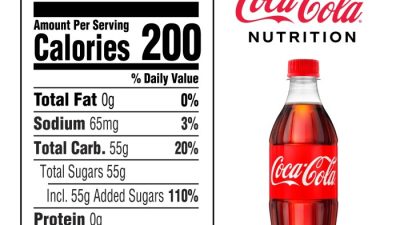Potential Drawbacks and Considerations: Nutrition Facts Large Apple
Nutrition facts large apple – While apples offer numerous health benefits, it’s crucial to acknowledge potential drawbacks associated with excessive consumption. Understanding these limitations allows for responsible incorporation of apples into a balanced diet, maximizing benefits while minimizing risks. The key lies in moderation and awareness of individual needs.Apples, like many fruits, contain fructose, a natural sugar. Consuming large quantities of apples can lead to a high intake of fructose, potentially contributing to issues such as weight gain, increased blood sugar levels, and even liver problems in susceptible individuals.
This effect is amplified if the apple consumption replaces other, more nutrient-dense foods in the diet. It’s important to remember that even natural sugars contribute to overall caloric intake.
High Fructose Content and its Implications
High fructose intake from any source, including apples, can have negative consequences. For instance, individuals with fructose malabsorption or metabolic disorders like non-alcoholic fatty liver disease (NAFLD) might experience digestive distress or worsening of their condition. The body’s capacity to process fructose varies, and exceeding this limit can lead to undesirable health outcomes. Moderation is key, especially for individuals with pre-existing health conditions.
A diet rich in diverse fruits and vegetables is generally recommended, avoiding reliance on any single fruit as a primary source of nutrients.
Allergic Reactions to Apples
Although relatively uncommon, allergic reactions to apples are possible. These reactions can range from mild symptoms like itching or skin rash to more severe ones, including anaphylaxis, a life-threatening condition requiring immediate medical attention. Individuals with known allergies to birch pollen or other related allergens are at a higher risk of developing an apple allergy. This cross-reactivity is due to similar proteins found in these substances.
Anyone experiencing symptoms after consuming apples should seek medical advice promptly.
Dietary Needs and Restrictions, Nutrition facts large apple
Incorporating apples into a diet requires considering individual needs and restrictions. For example, people with diabetes need to monitor their apple intake carefully due to its sugar content, adjusting their medication or insulin dosage accordingly. Those on low-FODMAP diets for irritable bowel syndrome (IBS) might need to limit apple consumption as it contains fructans, which can trigger symptoms.
Furthermore, individuals following specific weight-management plans should account for the caloric contribution of apples and adjust their overall intake accordingly. Consultations with a registered dietitian or healthcare professional are recommended for personalized dietary guidance.
Key Questions Answered
Are all apple varieties nutritionally the same?
No, different apple varieties have varying levels of vitamins, minerals, and fiber. For example, Granny Smith apples tend to be higher in vitamin C than Fuji apples.
Can I eat too many apples?
While apples are healthy, consuming excessive amounts can lead to digestive issues due to the high fiber content and also contribute to high fructose intake. Moderation is key.
Are apples suitable for people with diabetes?
Apples contain natural sugars, so individuals with diabetes should consume them in moderation and monitor their blood sugar levels. The fiber content can help regulate blood sugar, but portion control is essential.
What are some creative ways to use apples beyond eating them raw?
Apples can be added to salads, baked into pies and crumbles, incorporated into smoothies, or even used in savory dishes like apple chutney or pork roast.
How can I store apples to maintain their freshness and nutritional value?
Store apples in a cool, dry place away from direct sunlight. Refrigeration can extend their shelf life, but some varieties may lose their crispness in the fridge.
A large apple offers a good source of fiber and Vitamin C, contributing to a healthy diet. However, comparing this to the caloric and sugar content found in other beverages is important; for instance, checking out the long drink nutrition facts provides a useful contrast. Understanding these differences helps make informed choices about overall daily nutritional intake, ensuring the apple’s benefits are properly balanced within your diet.












